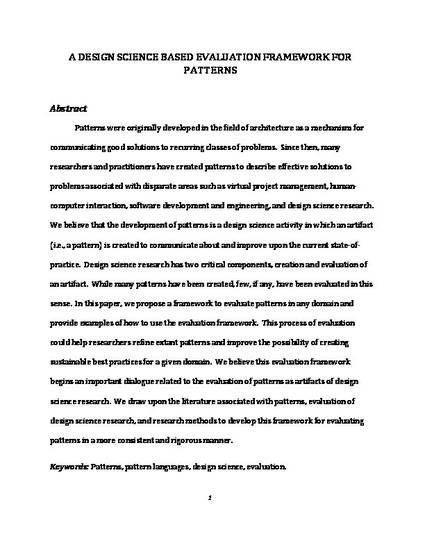
Patterns were originally developed in the field of architecture as a mechanism for communicating good solutions to recurring classes of problems. Since then, many researchers and practitioners have created patterns to describe effective solutions to problems associated with disparate areas such as virtual project management, human-computer interaction, software development and engineering, and design science research. We believe that the development of patterns is a design science activity in which an artifact (i.e., a pattern) is created to communicate about and improve upon the current state-of-practice. Design science research has two critical components, creation and evaluation of an artifact. While many patterns have been created, few, if any, have been evaluated in this sense. In this paper, we propose a framework to evaluate patterns in any domain and provide examples of how to use the evaluation framework. This process of evaluation could help researchers refine extant patterns and improve the possibility of creating sustainable best practices for a given domain. We believe this evaluation framework begins an important dialogue related to the evaluation of patterns as artifacts of design science research. We draw upon the literature associated with patterns, evaluation of design science research, and research methods to develop this framework for evaluating patterns in a more consistent and rigorous manner.
Available at: http://works.bepress.com/khazanchi/25/

The definitive version of this article can be found here: 10.1145/1851175.1851177.